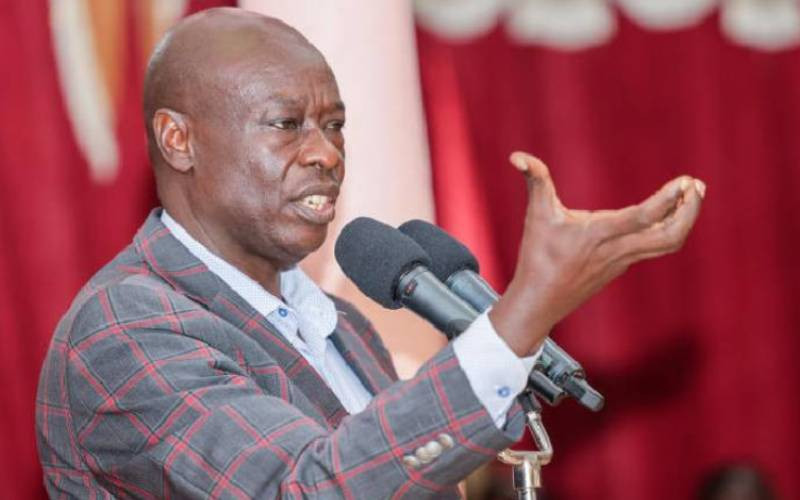Hamas has delivered its response to the US-backed ceasefire proposal to Egypt and Qatar, and one person familiar with the matter said the group wanted changes before committing to a deal.
Israel’s worst armed conflict in half a century has set off an inflationary chain reaction that’s finally coming into view. “Help, We Are Out of Air, We Are Collapsing,” blared a headline on the popular news website Walla in June — an appeal for help against inflation as the public outcry grows.
US says Netanyahu backs Israel-Hamas war ceasefire plan
US Secretary of State Antony Blinken said Israeli Prime Minister Benjamin Netanyahu had reiterated his support for a ceasefire proposal during a meeting in Jerusalem, as the US tries to gain momentum for a plan to end the eight-month Israel-Hamas war.
“I met with Prime Minister Netanyahu last night and he reaffirmed his commitment to the proposal,” Blinken told reporters on Tuesday on his eighth trip to the Middle East since the conflict broke out in October.
Blinken said a response from Hamas to a United Nations Security Council resolution on Monday backing the ceasefire was a “hopeful sign.” However, he stressed that a final decision on the plan from Hamas leadership in Gaza was what really mattered and had yet to be delivered.
Read more: UN Security Council adopts US resolution backing Gaza truce
Israel and Hamas, a US-designated terrorist group, have for months failed to agree on terms that could lead to an end to the fighting, despite sustained efforts to mediate by Qatar, Egypt and the US.
US President Joe Biden laid out a three-phase peace plan on 31 May that he said was backed by Israel, but the level of support from Netanyahu’s government has been clouded by uncertainty over whether it approves of all or part of the proposal.
Mediators were waiting for a formal response from Hamas and exploring ways to bridge the final gap between the two sides, according to a person familiar with the talks. Hamas wanted assurances that an automatic transition would take place from one phase of the agreement to another, the person said, asking not to be identified due to the sensitivity of negotiations.
The first phase of the Biden-presented proposal calls for a ceasefire and withdrawal of Israeli forces from populated areas of Gaza, while the second stage includes a permanent end to hostilities. Some of the remaining hostages taken by Hamas during the 7 October attack that triggered the war would be released in the initial phase, and the rest in phase two.
Israel has long insisted that Hamas must be destroyed for the war to end, both in retaliation for and to avoid a repeat of the 7 October invasion. Hamas wants a guarantee of a permanent ceasefire before a hostage and prisoner exchange can take place.
Later on Tuesday, during a stop in neighbouring Jordan, Blinken pledged more than $400-million in US assistance for Palestinians in Gaza, the West Bank and the broader region.
The top US diplomat made the announcement at an event hosted by Jordan’s King Abdullah II in a resort town on the Dead Sea, where other nations coordinated pledges for Gaza — including around $13-million for the Palestinian Authority from the UK. In total, the United Nations is appealing to donors for $2.8-billion for Gaza and the West Bank — roughly 10-fold the amount the organisation said it needed the week after Hamas attacked Israel in October.
“Give more aid,” Blinken told the assembled officials in Jordan. “There is no time to waste.”
Hamas responds to ceasefire proposal backed by Biden
Hamas has delivered its response to a US-backed ceasefire proposal to Egypt and Qatar, and one person familiar with the matter said the group wanted changes before committing to a deal.
In a joint press statement, Hamas and Palestinian Islamic Jihad said they delivered their response to senior officials from Qatar and Egypt, which have mediated efforts towards establishing a ceasefire in the eight-month conflict.
“The response prioritises the interest of our Palestinian people, and the necessity of completely stopping the ongoing aggression against the Gaza Strip,” the statement said.
National Security Council spokesman John Kirby said the US was also weighing up Hamas’s response. “We are evaluating it right now,” he said.
The details weren’t immediately clear, but one person familiar with the group’s stance, who asked not to be identified discussing private deliberations, said Hamas and Palestinian Islamic Jihad wanted some modifications. Al-Jazeera reported that Hamas was demanding Israel’s full withdrawal from the Gaza Strip — an idea that would be a non-starter for Israeli Prime Minister Benjamin Netanyahu.
President Joe Biden laid out a three-phase peace plan on 31 May that he said was backed by Israel, but the level of support from Netanyahu’s government has been clouded by uncertainty over whether it approves of all or part of the proposal.
War’s aftershocks force Israelis to reckon with inflation
The Israeli town of Ofakim is just a short distance from Gaza, where war has raged for eight months. But it’s taken until now for the inflationary fallout of the conflict to hit home.
As tens of thousands fled the areas near Israel’s southern and northern borders after Hamas’ attacks on 7 October, the housing stock shrank by nearly 5% overnight, a setback for an economy whose pre-war cost of living already topped Switzerland’s as the most expensive among the OECD’s 38 member countries.
After months spent crammed into hotel rooms, many evacuees are starting to lease longer term — just when housing is already in short supply. For Shahar Zvolon, a resident of Ofakim, that contributed to a 30% increase in her rent, an expense that accounts for more than a quarter of Israel’s monthly consumer price basket.
Israel’s worst armed conflict in half a century has set off an inflationary chain reaction that’s finally coming into view. “Help, We Are Out of Air, We Are Collapsing,” blared a headline on the popular news website Walla in June — an appeal for help against inflation as the public outcry grows.
The initial shock to consumer spending was so big that it kept inflation from accelerating despite disruptions in the economy. But now that domestic demand is bouncing back, the cost of everything from groceries to travel is taking off.
Intensifying price pressures have reversed a six-month slowdown in inflation, which probably quickened in May beyond the official 1%-3% target range for the first time this year. The latest monthly reading is due on Friday.
The bleaker outlook is also rewriting the timeline for the central bank’s plans to ease monetary policy further, threatening to keep borrowing costs higher for longer just as the government looks to the debt market to fund the bulk of its massive spending needs.
The momentum of inflation will be harder to slow with unemployment back near pre-pandemic lows and a near 8% growth in wages during the first two months of 2024. Higher taxes and utility costs — combined with an expansive fiscal policy and a more volatile shekel — are also putting a strain on prices.
The Finance Ministry now expects inflation to end the year at 3.3%, nearly a full percentage point higher than forecast by the central bank in January. The biggest contributors are housing, transportation and food — categories that together account for over half of Israel’s consumer price basket.
Spiralling food prices are an especially stark case of how echoes of the war resonate through the economy.
Once the fighting erupted, demand surged because people looked to stock up on food while the government boosted its own purchases to provide for soldiers and other security forces. Food prices rose by an estimated 2% in the first weeks of the war alone.
There has been little let-up since. Roughly half of Israel’s 29 largest food companies — local producers and importers — have marked up prices by as much as 30% since January.
Amid exchanges of fire, access has been limited to as much as a third of Israel’s agricultural land, according to BDO Consulting, further unsettling a farming industry whose workforce shrank by 40%.
A halt of exports by Turkey, higher global commodity prices and rising cost of transportation due to Houthi attacks on Red Sea shipping made matters worse.
“This has increased dependency on imports, which on their part, have grown costlier due to rising transportation fees and the Turkish trade ban on Israel,” said Chen Herzog, chief economist of BDO Consulting.
Spillovers into the rest of the economy have pushed up restaurant prices by over 3% in each of the past four months.
The head of an association of restaurant owners recently admitted to breaking competition laws by attempting to collude with peers and raise prices by at least 5%-10%, arguing that profitability in the business “has eroded and prices need to be updated.”
Industries like aviation are suffering a similar squeeze, a worry because transportation and communication have the second-highest inflation weighting after food.
The number of international carriers with services to Israel is down by a third since the war began, cutting the average volume of daily flights by 40%. As a result, air ticket prices were the biggest driver of inflation in April with an 11% surge.
With more people returning from reserve duty in the army, demand is set to grow further.
The housing market shows why relief from inflation is likely a long way away.
A ban on Palestinian workers means an estimated one-third of building sites remain shuttered, with a steep drop in productivity hurting the rest. More than two-thirds of Palestinians employed in Israel before the war worked in construction.
The risk is that the supply of new homes won’t begin to recover for at least the next two years, pushing more potential buyers to rent — just as an increasing number of Israelis displaced by the war look to settle down.
Intel delays construction on Israel plant in effort to manage global costs
Intel will delay construction on its $25-billion chip-manufacturing plant in Israel as the company works to pace its multibillion-dollar investments in factories planned worldwide, people familiar with the matter said.
The slowdown to Intel’s plans is temporary, the people said, asking not to be identified because the information isn’t public. The company sent a note to some suppliers last month informing them of the delay, one of the people said.
A representative for Intel said that the company remained “fully committed” to Israel and the region and that managing a large-scale project “often involves adapting to changing timelines. Our decisions are based on business conditions, market dynamics and responsible capital management,” the spokesperson said.
Chief Executive Officer Pat Gelsinger is seeking external funding for more of its projects — which can cost tens of billions of dollars and last for several years — and attempting to manage costs in a programme the company called “Smart Capital.” Earlier this month, Intel agreed to sell a 49% stake in its Irish plant to a private equity company for $11-billion.
Intel announced plans for the plant, which is partly funded by $3.2-billion in incentives from the Israeli government, last year. The company is betting that expanded production capacity will help it attract more customers who want to produce their own designs in Intel’s factories.
Israeli newspaper Calcalist reported earlier on Monday that the project had been halted, citing suppliers who’d received notice that their contracts had been cancelled.
The Israeli government had asked Intel to begin operations at the plant by 2028 and continue them until at least 2035. Intel also committed to spending 60 billion shekels ($16.2-billion) with Israeli suppliers over the next decade. DM
Read more in Daily Maverick: Middle East crisis news hub



















Discussion about this post